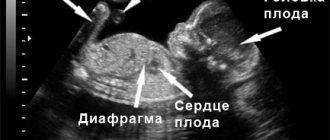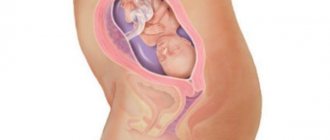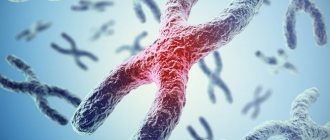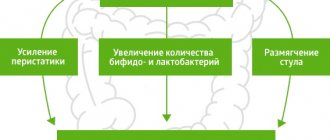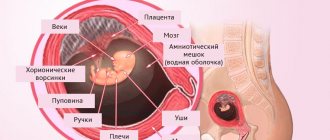In vitro fertilization is a modern reproductive medicine procedure that allows a woman to naturally carry and give birth to a child. The essence of this technology is the introduction of an egg fertilized in a laboratory into the uterus. Before carrying out the IVF procedure, the doctor determines which cells will be used for this - donor or own. For this type of procedure to be successful, you need to follow all stages of IVF day by day, as provided by medical protocols.
Stage 1 - Preparation
The IVF procedure by day lasts no longer than one menstrual cycle, but the preparatory stages of IVF itself can take much longer. Both a woman and a man who decide to undergo a standard IVF procedure take part in the preparatory stage.
Women
Doctors conduct a comprehensive examination of a woman and determine her ovarian reserve—the supply of immature eggs. If the ovarian reserve is absent or reduced to a critical level, doctors offer an alternative - the use of a donor egg.
It is necessary to make sure that the woman does not have any pathologies of the tissues of the uterus, ovaries and fallopian tubes, such as synechiae, polyps or hydrosalpinx. These pathologies must be removed before the IVF procedure itself.
The doctor will take a bacterial swab to make sure there are no infections. Otherwise, treatment will be necessary, since any infection reduces the likelihood of a favorable IVF outcome. Before entering into the standard IVF procedure, 7–10 days before menstruation, an ultrasound of the pelvic organs is performed, which allows us to assess the condition of the uterine cavity, its size, the thickness of the mucosa, as well as the functioning of the ovaries.
Men
A man who will become a donor during IVF will have to take a spermogram. This analysis allows you to determine the reproductive ability of a man and identify existing diseases of the reproductive system, if any. Before in vitro fertilization is performed, male reproductive cells are checked for genetic defects in the Y chromosome, which often cause male infertility.
The man will also need to undergo a urethral smear and test for TORCH infections to make sure that he does not have prostatitis, urethritis, or sexually transmitted diseases.
When should you think about IVF?
Many people think that if they conceive once without help, it will happen again. But in reality this does not always happen. Secondary infertility is diagnosed when a woman has already given birth to one or more children, but is unable to become pregnant again naturally. Secondary infertility can be caused by age-related and medical changes, but sometimes the cause remains unknown. For people experiencing secondary infertility, the decision to undergo IVF can be difficult.
Don’t forget to subscribe to our Yandex.Zen channel, where you will find even more articles about the latest scientific discoveries in the field of reproductive medicine
Over time, the quality of a woman's eggs decreases, which can make it difficult to conceive and carry a pregnancy to term. For this reason, some doctors and scientists advise young women as young as 25 to think about their fertility, even if they have no plans to have children yet.
Stage 2 - Hormone therapy
The next stage of the IVF procedure begins on the second day of the menstrual cycle and lasts from 12 to 14 days. Its essence is to use hormonal therapy to stimulate the ovaries to produce 8–10 oocytes capable of fertilization. This is the amount that will be enough for successful IVF.
During hormone therapy, an ultrasound of the pelvic organs is required every four days, according to the results of which the doctor can adjust the dosage of the drugs.
To carry out the classical IVF procedure, follicle-stimulating hormone of the pituitary gland FSH, ionic gonadotropin and GnRH analogs can be used. The doctor prescribes a treatment regimen depending on the protocol that will be chosen for IVF.
The international scientific community has approved various protocols for stimulating ovulation:
- Super long - it lasts 2-3 months;
- Ultra-short - lasts up to 10 days and involves high dosages of hormones. Typically, this protocol is prescribed for diagnoses such as insufficient follicular reserve and low levels of the AMH hormone;
- IVF protocol in a natural cycle - in this case, hormonal stimulation is not carried out, and one egg that has matured in the natural menstrual cycle is taken for fertilization;
- IVF protocol with minimal stimulation - small doses of hormonal drugs are used for stimulation.
Most often, a short protocol is used, since women who need in vitro fertilization have serious problems with their ovaries. In any case, the doctor will choose the most health-safe protocol for IVF. Very often, the IVF protocol in a natural cycle is first used to avoid hormonal stress on the body, and only if this method does not bring results, hormonal stimulation is prescribed.
How does the IVF procedure work?
home
For patients
How does the IVF procedure work step by step?
Many married couples who decide to use artificial insemination to conceive a child do not know how the IVF procedure goes.
This is not one separate manipulation, but a whole complex of measures, which usually lasts several weeks, and if successful, ends with the woman’s pregnancy.
Let's talk about how IVF goes step by step.
This procedure can be divided in stages:
Preparing for IVF.
Preparation for IVF includes a comprehensive examination of the couple.
Diagnostic procedures are required for:
- determining possible contraindications to IVF;
- choosing the optimal stimulation scheme;
- determining indications for additional procedures within the framework of IVF (ICSI, PISCI, PGD, assisted hatching, use of donor sperm, etc.).
There are mandatory and additional tests. Mandatory studies are prescribed to all married couples without exception. Without them, you will not be able to enter into the IVF protocol. Additional studies may be prescribed according to indications.
Mandatory tests and diagnostic procedures for both spouses:
- Blood for HIV, viral hepatitis B and C, syphilis, genital herpes.
- Determination of blood group and Rh factor.
- Microscopy of a smear from the genital tract.
- PCR smear from the genital tract for infections: chlamydia, ureaplasmosis, mycoplasmosis, cytomegalovirus, herpes.
Mandatory tests and consultations for men:
- Andrologist consultation.
- Spermogram, MAP test.
Mandatory tests, consultations and diagnostic procedures for women:
- Blood test for sex hormones.
- Blood test for TORCH infections (rubella, toxoplasmosis, cytomegalovirus).
- Coagulogram (hemostasiogram).
- Clinical analysis of blood and urine.
- Blood chemistry.
- Microscopy of a smear from the urethra, cervical canal, vagina.
- Cytological examination of a smear from the cervix and cervical canal.
- PCR smear for herpes type II, HPV types 16 and 18.
- Ultrasound of the pelvic organs.
- Ultrasound of the thyroid gland.
- Electrocardiography.
- Echocardiography.
- Fluorography.
- Ultrasound of the mammary glands, and after 35 years - mammography.
- Consultation with a mammologist.
- Consultation with a therapist.
Sometimes women are prescribed additional examinations, such as hysteroscopy or laparoscopy.
Stimulation of superovulation.
A woman is prescribed hormonal drugs to stimulate the maturation of several eggs at once. With a good ovarian reserve, about 10 follicles mature in one cycle. From most of them it will be possible to obtain high-quality eggs in the future.
The stimulation scheme is selected for each woman individually. There are many types of IVF protocols. Special hormonal drugs are used to stimulate ovulation. The main criteria for choosing a stimulation regimen and dosage are the woman’s age, her ovarian reserve and previous stimulation experience.
Sometimes this step is missing. IVF in women with low ovarian reserve is often performed in a natural cycle. That is, hormonal drugs are not prescribed for the maturation of a large number of eggs.
Follicle puncture.
Using ultrasound, the growth process of follicles in a woman’s ovaries is regularly monitored. These are fluid-filled sacs, most of which contain an egg. To obtain germ cells, follicle puncture is performed.
This procedure takes place under general intravenous anesthesia and lasts only a few minutes. After the eggs are collected, they are immediately placed in a nutrient medium and sent to the embryology laboratory.
Fertilization of eggs.
On the same day, fertilization of the eggs is carried out. For this purpose, the sperm of the spouse (if necessary, a donor) can be used. Therefore, the husband must also come to the clinic on the day of the follicle puncture to donate sperm.
Sometimes frozen (cryopreserved) sperm is used. This is usually required in cases where:
- the husband has little sperm, and it needs to be accumulated before the fertilization procedure;
- The husband does not have time to come on the day of the follicle puncture, and he donates sperm in advance.
Frozen sperm is also usually used if there is a need to fertilize eggs using donor biomaterial. Donor sperm may be required for single women or if the husband is completely infertile.
Embryo cultivation.
Fertilized eggs produce embryos. They are in a special nutrient medium. They then develop in an incubator for 3-5 days. Conditions are created for the embryos that are as close to natural as possible.
At this stage of IVF, PGD is possible. This is a method for diagnosing genetic and chromosomal abnormalities. It allows you to select a healthy embryo for transfer into the uterus, which is highly likely to develop normally.
Embryo transfer.
1 or 2 embryos are transferred into the uterus, depending on how the chances of pregnancy are assessed. When transferring 2 embryos, the success rate is higher. However, the risk of multiple pregnancies also increases.
The transfer procedure itself is simple and painless. It only lasts a couple of minutes. Using a special device that resembles a syringe with a flexible tube at the end, the embryo is placed into the uterine cavity. If the embryo is successfully implanted into the endometrium (the lining of the uterus), pregnancy occurs.
Control and support of pregnancy.
After embryo transfer, the woman is prescribed hormonal medications for the normal development of pregnancy. Its confirmation is carried out after 2 weeks using a blood test for hCG. After another 1 week, the woman undergoes an ultrasound scan. Pregnancy is diagnosed if a fertilized egg is detected in the uterus using ultrasound.
Now you know how IVF goes step by step. Don't be afraid of this procedure. This is a safe and highly effective method of overcoming infertility. Thanks to IVF, hundreds of thousands of married couples around the world have already become happy parents.
Author of the text: Gynecologist-reproductologist Ph.D. Plokhova E.Yu.
IVF cost in Moscow
All services
| Standard IVF program (not including the cost of medications) | 131 500 rub. |
| Standard IVF program - PGD without transfer (not including the cost of medications) | 110 250 rub. |
| Natural cycle IVF program (not including the cost of medications) | 108 700 rub. |
| Natural cycle IVF program without transfer (not including the cost of medications) | 82 100 rub. |
| Program for the preparation and transfer of cryopreserved embryos | 59 500 rub. |
| IVF under the program “Oocyte donation with an anonymous donor” (not including medications to stimulate superovulation of the donor) | 342 100 rub. |
| ICSI micromanipulation – 1-5 oocytes | 35 000 rub. |
| Micromanipulation PIXI (in addition to ICSI) | 14 700 rub. |
Our specialists
doctor
Bazanov Pavel Aleksandrovich Head of the VitroClinic network of clinics, Ph.D.
Sign up Schedule
Gorskaya Olga Sergeevna Gynecologist-reproductologist, Ph.D.
Sign up Schedule
Kuznetsova Irina Andreevna Gynecologist-reproductologist, Ph.D.
Sign up Schedule
Pavlukhina (Selezneva) Svetlana Sergeevna Gynecologist-reproductologist, Ph.D.
Sign up Schedule
Tupikina Natalya Vladimirovna Gynecologist-reproductologist, Ph.D.
Sign up Schedule
Maeva Nora Khachaturovna Gynecologist-reproductologist
Sign up Schedule
Mityushina Natalya Gennadievna Head of the Department of Embryology, embryologist, Ph.D.
Sign up Schedule
Gavrilova Olga Evgenievna Embryologist, geneticist
Sign up Schedule
Iskakova Aliya Temirkhanovna Obstetrician-gynecologist, reproductive specialist
Make an appointment Schedule
Stage 3 - Follicle puncture
The next stage of standard IVF lasts no longer than 1 day. When a woman's eggs mature under the influence of hormonal therapy, they must be punctured. This procedure is considered minor surgery and is performed under short general anesthesia. Using an ultrasound sensor, the doctor performing the manipulation selects the shortest path with the minimum number of punctures of the ovarian capsules and vaginal walls, and then inserts a special needle and collects the eggs. The procedure itself lasts from 3 to 30 minutes.
After the follicle puncture, the woman can go home within 2–3 hours. Among the existing restrictions is a ban on driving on the day of surgery. The patient may experience discomfort for 2–3 days after the procedure.
On the day of follicle puncture, a man must donate sperm, which will be used to fertilize eggs in the laboratory.
Luteal phase of the cycle. Pregnancy tests
At this stage, the production of progesterone in the woman’s body is disrupted due to stimulation of egg maturation, so its level is constantly maintained with the help of medications.
After embryo transfer, an examination is carried out; based on its results, the attending physician may prescribe additional medications.
A pregnancy test is done two weeks after embryo transfer using a hCG blood test.
If the test shows a positive result, the patient continues to take medications, and after a week the fetus can be seen on an ultrasound.
Stage 4 - Fertilization of the egg and growing the embryo
The eggs are examined by embryologists to determine their level of maturation. They are washed of follicular fluid and placed in a nutrient medium to be transferred to an incubator, and then fertilized in vitro.
With a favorable outcome, from 50% to 90% of the eggs are fertilized. Within 24 hours, the zygotes begin to divide. After 2 days they consist of 2-4 cells, after 3 days - of 6-10 cells. Normally, on the fifth day, the zygote divides into two types of cells - some will form the fetus in the future, and others will form the placenta.
It is mandatory that fertilized eggs are examined daily by specialists to exclude developmental defects and any hereditary pathologies. When the zygotes reach the required level of development, the doctor will select the healthiest cells for the next stage of standard IVF.
Monitoring
During stimulation of superovulation, ultrasound monitoring of the growth of ovarian follicles, as well as the maturation of the endometrium, is carried out. This is necessary to adjust the dose of administered drugs, which can be increased or decreased. It all depends on the condition of these organs. On the one hand, it is necessary to obtain a sufficient number of mature eggs, but on the other hand, excessive stimulation can lead to complications. A follicle with a diameter of 17–20 mm is considered mature, with a thickness of the uterine mucosa (endometrium) greater than 8 mm.
Ultrasound monitoring
Monitoring is done by your healthcare provider, usually on days 2–3 of your menstrual cycle. At the same time, stimulant drugs are prescribed. The next follicular growth study is repeated after approximately 5 days. Further studies are carried out more often, almost daily, until the follicles reach sizes close to ovulatory. The study is carried out with an ultrasound sensor, which is inserted into the vagina. This procedure is painless. Do it safely. To ensure sterility, a disposable condom is placed on the sensor. The thickness of the endometrium is assessed, as well as the number and diameter of follicles, and the doctor decides whether to change the dose of drugs. When certain criteria are reached, usually on the 10th–14th day of the cycle, a decision is made to end stimulation. After this, hCG drugs are prescribed, the exact time of their administration is reported, as well as the date of the upcoming puncture.
What should you do?
If you are scheduled for an ultrasound monitoring day, you should not do any injections in the morning without your doctor's advice. An ultrasound through the vagina is performed with an empty bladder, otherwise the doctor will not be able to see the ovaries on the monitor. You will have to undress as if for a gynecological examination.
Administration of hCG
hCG drugs (Pregnil) are administered for the final maturation of the egg. The doctor will tell you the exact time of administration of the drug, which usually occurs in the evening hours. It is very important to strictly observe the time of drug administration. The route of administration is intramuscular. The rules of administration are the same as those described earlier for intramuscular agents. Check the dose of the drug carefully, as the ampoule may contain 1,500, 5,000 IU (International Units). Sexual intercourse should be stopped. It is very important not to be late, to arrive at the puncture on time, 35–36 hours after the hCG injection. It is advisable to take a robe, slippers, nightgown or long T-shirt with you to the puncture, and bring socks. When you have a puncture, your spouse will need to be present.
Stage 6 - Maintaining the pregnancy
After in vitro fertilization, it is important to monitor how the embryo develops. You may need hormonal therapy, which will be prescribed only based on the results of ultrasound and tests.
14 days after transfer of the embryo into the uterine cavity, it is necessary to take an analysis for the level of the hCG hormone, based on the results of which it can be concluded that pregnancy has occurred.
If the result is positive in the first trimester, it is important to regularly consult with a doctor and take all the necessary tests to monitor the woman’s condition and the development of pregnancy. Maintenance hormonal therapy after IVF can last about 10-12 weeks.
History of IVF development
The step towards the development of artificial insemination was made long before the birth of the first test-tube child. In 1880, Walter Hiap, a doctor and professor at the University of Cambridge from Great Britain, was studying reproductive function in animals classified as mammals. It was then that Khiap expressed the idea of transferring a fertilized embryo into a living organism, as an opportunity for its safe development, growth and, as a result, natural birth.
A detailed description of the IVF technique is described in the book by Aldous Huxley in 1932. The dystopia “Brilliant New World” describes in detail the fertilization procedure using the example of a female rabbit. The main characters, scientists Pincus and Enzmann, obtain an oocyte (egg), fertilize it on a watch glass and transfer it to another female rabbit, that is, pregnancy appears in an unmated animal. As a result, scientists suggested that a similar experience can be repeated in a relationship with a person, solving the acute problem of infertility. Artificial insemination, as an independent direction, slowly but developed. Here are some interesting facts:
- In 1948, scientists Miriam Mencken and John Rock were able to obtain more than 700 human oocytes, of which 140 were connected with sperm. Data from the operations were published in the American Journal of Obstetrics and Gynecology.
- In 1959, Scientist W. Chang was able to fertilize a female rabbit using the principles of IVF. The animal successfully produced healthy offspring.
- In 1976, biologist R. Edwards and gynecologist P. Steptoy performed the first in vitro fertilization of a woman born in Great Britain, which resulted in the birth of Louise Brown.
Most scientists working on in vitro fertilization had experience in microscopy, anatomy, and embryology. R. Edwards is the winner of the Nobel Prize, awarded to him as a token of gratitude by the world community in 2010.
The history of IVF development in Ukraine goes back more than 25 years. The first “test tube” child was born in 1991 - a girl, she was named Ekaterina. The artificial insemination program itself was officially launched in 1990. Now in Ukraine there is UARM (Ukrainian Association of Reproductive Medicine), the main goals of which are:
- association of experts in the field of reproductive medicine;
- development and dissemination of knowledge in the field of assisted reproductive technologies;
- informing specialists and patients about the state of reproductive medicine in Ukraine;
- implementation and formation of international quality standards in the field of ART;
- to contribute to increasing the effective treatment of infertility in Ukraine.
Indications for IVF
Any of the stages of standard IVF is associated with interference in the natural functioning of the body. Accordingly, there are many risks to a woman’s health. That is why strict medical indications are required to carry out all stages. It is also worth noting that IVF is prescribed only in cases where it is impossible to carry out treatment and establish the causes of infertility.
The classic IVF procedure is performed for the following indications:
- ovulation disorders or lack of ovulation;
- insufficient amount of ejaculate;
- obstruction of the fallopian tubes;
- endometriosis;
- serious inflammatory diseases of the genitourinary system;
- absence of a fallopian tube due to its removal due to an ectopic pregnancy;
- long-term treatment of gynecological diseases - it makes sense to perform IVF to overcome many obstacles on the path to conception.
At the stage of growing embryos during IVF, all fertilized eggs are necessarily studied in the laboratory. This makes it possible to identify many genetic abnormalities. Thus, another indication for IVF is a high risk of genetic abnormalities and hereditary diseases. Modern diagnostic methods make it possible to select donor material that does not contain unwanted genes even at the stage of implanting the embryo into the uterine cavity, which several times increases the chances of having a healthy child.
Another indication for IVF is genetic incompatibility of the couple. These are some of the most difficult cases in the practice of reproductive specialists. As a result of genetic incompatibility, both spouses can be absolutely healthy, but cannot conceive naturally and give birth to a healthy child. All couples diagnosed with “genetic incompatibility” are required to undergo a special analysis - karyotyping. At this stage, the blood is examined for the number of chromosomes, as well as their quality. As a result of such diagnostics, specialists make a forecast regarding the success of IVF and the chances of having a completely healthy child. If the outcome is unfavorable, specialists will offer alternative options, for example, performing in vitro fertilization with a donor egg or sperm.
How much does IVF cost: average prices in Russia
Those who are faced with the problem of infertility often ask the question “how much does the IVF procedure cost?”, because, as you know, it is not available to all categories of the population. Let's talk about prices in more detail.
The cost of IVF varies in different clinics. Average prices range from 80 to 90 thousand rubles, but the final cost is calculated individually for each married couple. For some partners, a standard set of medications is enough and all stages of in vitro fertilization take place without the slightest deviation, while others may need a large number of hormonal stimulants or the acquisition of a donor egg.
For those who cannot afford the IVF procedure due to financial difficulties, there are government programs. Their disadvantage is that you have to wait in line for several years (but each situation is individual). The way out of this situation is to carry out artificial insemination under a compulsory health insurance policy. IVF according to the policy is carried out not only in public, but also in most private clinics. In this case, the insurance company covers all standard expenses, namely:
- stimulation with hormonal drugs for follicle growth;
- collecting cells from partners;
- fertilization procedure;
- placing the embryo in the uterus.
Some clinics may offer discounts (for example, for a second IVF procedure, regardless of whether the first attempt was successful or not).
If a man's sperm do not have sufficient mobility to reach the egg and fertilize it, they resort to artificial insemination. Its price is an order of magnitude cheaper than conventional IVF and will cost 10-15 thousand rubles.
Carrying out in vitro fertilization at the clinic “For Birth”
The “For Birth” Clinic is a leading center that specializes in the treatment of all types of infertility and in vitro fertilization. Among our advantages are highly qualified doctors, the use of advanced safe methods in the field of reproductology, approved by the international scientific community, a modern technical base, an affordable price for all types of research and treatment.
Clinic “For Birth” offers the following services:
- conducting a free initial consultation with doctors of various specializations - geneticists, embryologists, andrologists, obstetricians-gynecologists, therapists, endocrinologists;
- comprehensive medical examination, including examination by our leading specialists, a full range of necessary tests and instrumental diagnostics;
- choosing the most appropriate IVF protocol;
- determining the exact cause of infertility and making an accurate diagnosis;
- observation by relevant specialists not only when the stages of IVF are carried out, but throughout the entire pregnancy.
At the “For Birth” clinic, you can perform in vitro fertilization free of charge in accordance with the current state compulsory health insurance program.
To make an appointment for an initial consultation at our clinic, to find out what the price is for the manipulations and types of diagnostics you need, you can call +7 (499) 558-07-66. We work every day, seven days a week. To ensure that our clients can always get the information they need promptly, we provide free online consultations. You can submit a request for an online consultation on our website.
Where can I get IVF done?
Today, many government agencies and private clinics offer IVF and childbirth after this procedure. But you should not go to the nearest institution, but you need to choose the best center and the best fertility specialist, because the result of in vitro fertilization depends on the doctors and medical equipment.
The clinic of the IVF Center network in Smolensk shows a high percentage of successful IVF.
An excellent source in the selection process is patient reviews. They will provide a lot of useful information. Only an integrated approach to finding a clinic and a fertility specialist will allow spouses to soon enjoy the happiness of motherhood and fatherhood.
What are the dangers of IVF?
Complications during in vitro fertilization are rare.
In addition to complications that can occur during any procedure (bleeding, allergic reactions, exacerbation of inflammatory diseases), there is a separate group characteristic of IVF.
Complications of IVF:
- inflammatory diseases;
- bleeding;
- ovarian hyperstimulation syndrome;
- ectopic pregnancy;
- multiple pregnancy.
Ovarian hyperstimulation syndrome (OHSS)
With ovarian hyperstimulation, a woman experiences pain in the lower abdomen, a feeling of heaviness as a result of the accumulation of fluid in the abdominal cavity. In severe cases, symptoms include nausea, vomiting, and bloating.
Blood circulation in small vessels is disrupted, fluid retention occurs in the body, and diuresis decreases. Severe forms are treated in a hospital, they can lead to the fact that the only way out is termination of pregnancy. At the first signs of OHSS, a woman should immediately consult a doctor.
Ovarian torsion
As a result of an enlarged ovary, torsion may occur. The woman experiences pain of increasing intensity. If the operation is performed on time, the pregnancy can be saved.
Bleeding
Bleeding occurs during ovarian puncture, but in most cases it stops on its own. If bleeding continues, hematomas may form where the needle passes, and blood may accumulate in the abdominal cavity. In case of prolonged bleeding, an operation to cauterize the bleeding area is required.
Ectopic pregnancy
The pregnancy that occurred after the first IVF was ectopic. For a long time, they could not find out the reasons for the embryo entering the fallopian tube. Currently, it has been possible to significantly reduce the development of ectopic pregnancy after IVF.
Thanks to ultrasound examinations, the diagnosis of ectopic fetal development is carried out at an early stage. This makes it possible to exclude surgical treatment of this pathology, to stop the development of an incorrectly attached fetus in another way, and to preserve intrauterine pregnancy in case of multiple pregnancy.
Multiple pregnancy
The incidence of multiple pregnancy with IVF is about 30%. If a woman is pregnant with triplets or quadruplets, then fetal reduction is recommended. At 9-11 weeks of pregnancy, surgery is performed to reduce the number of developing fetuses. Multiple pregnancy is often the cause of miscarriage. Therefore, such a pregnancy requires special care and prevention.
Fetal anomalies
Trophoblastic disease (hydatidiform mole, chorionepithelioma, chorionic carcinoma) is associated with excessive growth and impaired development of placental cells.
Inflammatory diseases of the female reproductive system
Inflammatory disorders are rare due to examination before the procedure and subsequent treatment of inflammatory foci.
Any formations on the walls of the uterus or tubes are reservoirs of infections, so they must be removed before the procedure.
Complications when obtaining sperm using surgical methods
Rarely, complications such as scrotal hematomas and infection of wounds after surgery occur.
Does IVF affect a woman's health?
“IVF undermines women’s health” is one of the most common myths about in vitro fertilization. Numerous studies have shown that hormonal stimulation used in the IVF program is safe for health and does not affect patients’ weight gain. Doses of such drugs are selected individually for each woman, taking into account her condition.
In addition, couples who have not undergone a preliminary comprehensive examination are never admitted to the IVF program. Therefore, if a woman has any contraindications for the use of hormones or pregnancy, they will be identified in advance.
Lifestyle for both partners
Preparing a woman and a man for IVF involves serious lifestyle adjustments
Examinations and tests will allow you to monitor the general condition of the body, but the psychological mood of the couple also deserves attention.
Pregnancy planning includes:
- giving up bad habits, including even minimal drinking and smoking;
- limiting the amount of coffee consumption – no more than a cup per day;
- excluding visits to saunas and baths so that the body is not exposed to temperature changes:
- normalization of sleep patterns, which should account for at least 7-8 hours;
- creating a favorable psychological environment.
Diet and vitamins
During preparation for IVF, the diet does not include strict dietary restrictions, but correction of the diet in order to fill it with healthy foods. It is necessary to minimize, or better yet completely abandon:
- fried;
- fat;
- acute;
- sweet;
- canned food
Drinking regime
Before IVF, you must follow a regime of drinking clean water. A person should drink at least two, and preferably three, liters of water per day. The recommendation does not apply to those who have been diagnosed with kidney or heart pathologies. In this case, the drinking regime is individual.
Drinking the recommended amount of fluid will effectively remove toxins and waste from the body. This will help the woman avoid ovarian hyperstimulation syndrome, which is a complication of hormonal therapy in preparation for IVF. Doctors recommend drinking natural compotes, fruit drinks, green teas, giving up harmful soda and strong black tea and coffee.
Sports and physical activity
If partners lead a sedentary lifestyle, this should be changed. It is better to choose exercises that bring positive emotions, and not just strengthen the body. A woman can attend oriental dances - they are effective before the planned procedure, strengthening the pelvic organs and improving blood circulation in general.
Swimming in the pool and daily walks in the fresh air will also have a beneficial effect on the general condition of the partners.
Weight control
Excess body weight becomes an obstacle for those who want to become parents. If there is a problem, you need to undergo a whole body examination and visit a nutritionist. The recommendation is relevant for men and women.
Psychological attitude
Potential parents are interested in how to prepare themselves psychologically for IVF. Doctors recommend engaging in hobbies and getting positive emotions. You shouldn’t spend all your time loading yourself with information about the upcoming procedure.
Healthy sleep, a diet rich in vitamins, walks and spending time with your loved one will allow you to put fears aside and set yourself up for a positive result.
The essence of the method
In Vitro Fertilization
is a method of overcoming infertility in which the egg is fertilized by sperm outside the female body and transferred to the uterus after confirmation of fertilization.
IVF is carried out in several stages. First, ovulation and egg growth are stimulated using hormonal therapy, then they are collected, fertilized in a nutrient medium, and subsequently transferred to the uterine cavity. In case of infertility complicated by the pathological condition of the father's sperm or difficulties in the maturation of eggs, additional methods of reproductive technologies are used - ICSI, PIXI, laser hatching, cryoprotocol, etc. Are additional methods needed, or is classical IVF sufficient? Your personal reproductive specialist will find out all this during preliminary examination.
Further, pregnancy develops in the same way as during natural conception; the course of labor depends only on the characteristics of the pregnancy and the mother’s body.
We recommend reading:
news from the fields. News from the fields. ECO. Pregnancy planning. Preparing for pregnancy: where to start. 3 steps to happiness. Moreover, unlike synthetic drugs, Ovariamine proteins are absolutely safe and do not accumulate in the body.
Who knows everything about IVF? Anyone who has experienced IVF, please tell me where to start..... I’m sitting like in a tank, already exhausted by the expectation of a miracle (brief history in PM). After two years of trying to get pregnant, I seriously thought about IVF for the first time... but I don’t know where to start, where to go...
Insemination is my story. Is it necessary to say? During all this, a terrible number of deviations were discovered, ranging from infections (we treated them for a long time and tediously) and ending with an allegedly disturbed hormonal status. Methods for identifying the causes of infertility and treatment. Insemination and IVF. Section: Preparing for conception.
Is secondary infertility solved by IVF? For example, IVF according to a quota is carried out for women no older than 39 years inclusive. Now think that such a limit was set for a reason... A spermogram is the first thing you need to start with! Maybe everything is fine with you, then what does eco have to do with it?
what is missing for pregnancy? One gynecologist recommended Derinat injections (he said - to prepare the uterus for pregnancy and IVF is not a panacea, there in a decent clinic women with a similar history have a 50% success rate, then all women are built differently, some have poor quality the eggs begin...
Tests before IVF
Since I settled here... About IVF
Those who have undergone IVF with male factor
How do you prepare for pregnancy after 35? I had a difficult pregnancy with my second child, froze after IVF, then apparently on a surge. Personally, I started with tests, I didn’t have to quit drinking and smoking because I didn’t consume it in the first place, on Section: Preparing for conception (inurl forum it doesn’t work get pregnant eco and planning...
Preparation for IVF Good luck to you in preparation and in IVF itself. I agree with Mandarinka that not all IVF clinics practice such a protocol and Thank you for your wishes, this will all happen in August, I’ve just started preparing, thinking through everything. save money :) Don’t you know, this is not...
In preparation for IVF, a friend of mine gained weight from 58 to 85 kg, but now she has a son who recently turned 2 years old and she is happy. And it’s not a fact that another stimulation is possible with her ovaries ;-((( If IVF is successful, everything can be forgiven

